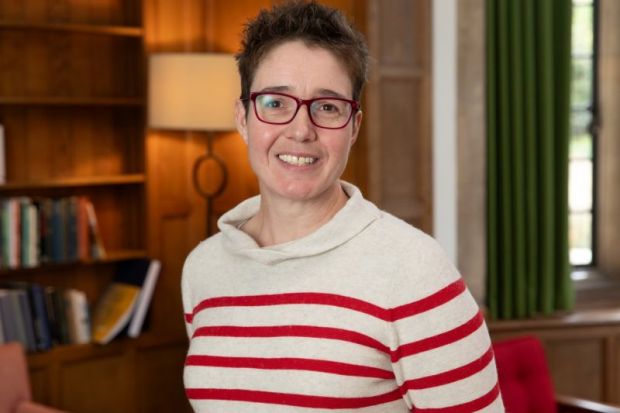An artificial intelligence expert has been appointed the new executive chair of the Engineering and Physical Sciences Research Council (EPSRC).
Charlotte Deane, who is currently professor of structural bioinformatics at the University of Oxford and chief AI officer at Exscientia, an AI-driven pharmaceutical company, will take up the new role in January, it was announced on 16 November.
Professor Deane was previously the EPSRC’s deputy executive chair during the Covid pandemic and acted as UK Research and Innovation’s (UKRI) Covid-19 response director. She received an MBE in the 2022 Birthday Honours for services to coronavirus research.
Announcing her appointment, the UK’s science secretary, Michelle Donelan, said: “Professor Deane’s return to the council as its executive chair is excellent news for the sector, bringing a strong record in driving pioneering research in business and academia and having spearheaded UKRI’s Covid response at a vital time for the UK.
“From digital technologies to clean energy, manufacturing to mathematics, advanced materials to chemistry, EPSRC-led discoveries impact on all our lives and I look forward to working with Professor Deane to take forward the innovation that benefits the whole country.”
Professor Deane succeeds Miles Padgett, who has been EPSRC’s interim executive chair since June, when Dame Lynne Gladden stepped down after five years in the role.
She will lead one of the UK’s largest research councils, which had a research and infrastructure budget of £817 million in 2023-24. It also spent about £250 million on PhD studentships and fellowships in 2022-23 – more than a third of all UKRI’s Collective Talent Funding.
UKRI’s director, Dame Ottoline Leyser, said Professor Deane “brings with her a wealth of experience and an impressive track record as a leader in both academia and business”.
“She will take on the leadership of EPSRC at a critical and exciting time, with the transformative potential for our economy, public services and society from new technologies such as AI and quantum,” said Dame Ottoline.
Professor Deane said she was “excited” about her new role and it would be a “real privilege to lead the EPSRC at such an important time”.
“The opportunities for EPSRC research have never been greater, from machine learning methodologies, which touch practically every aspect of the economy and society, to quantum computing and advanced materials to the growing understanding of the importance of EPS techniques for solving challenges, from climate change to future pandemics,” said Professor Deane.




